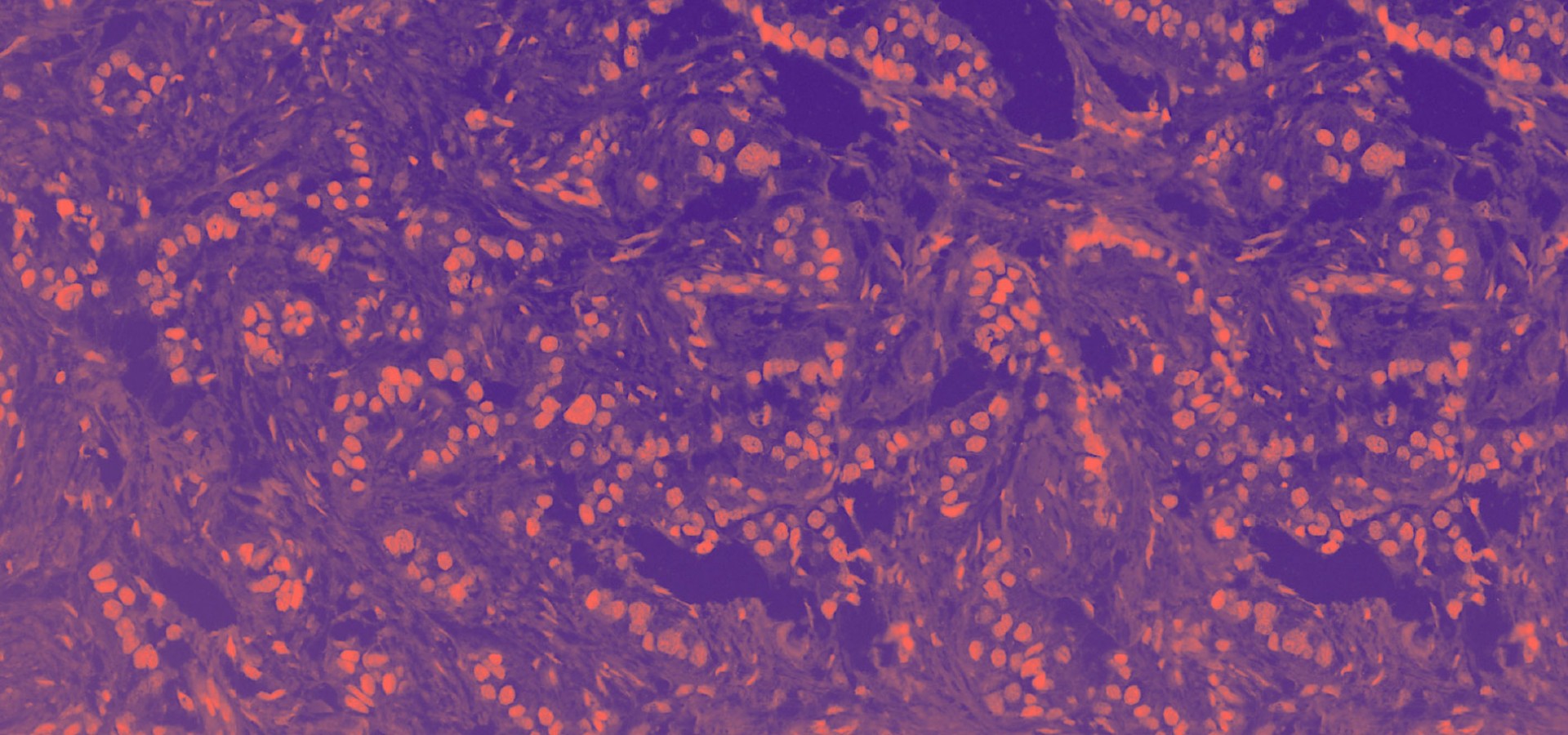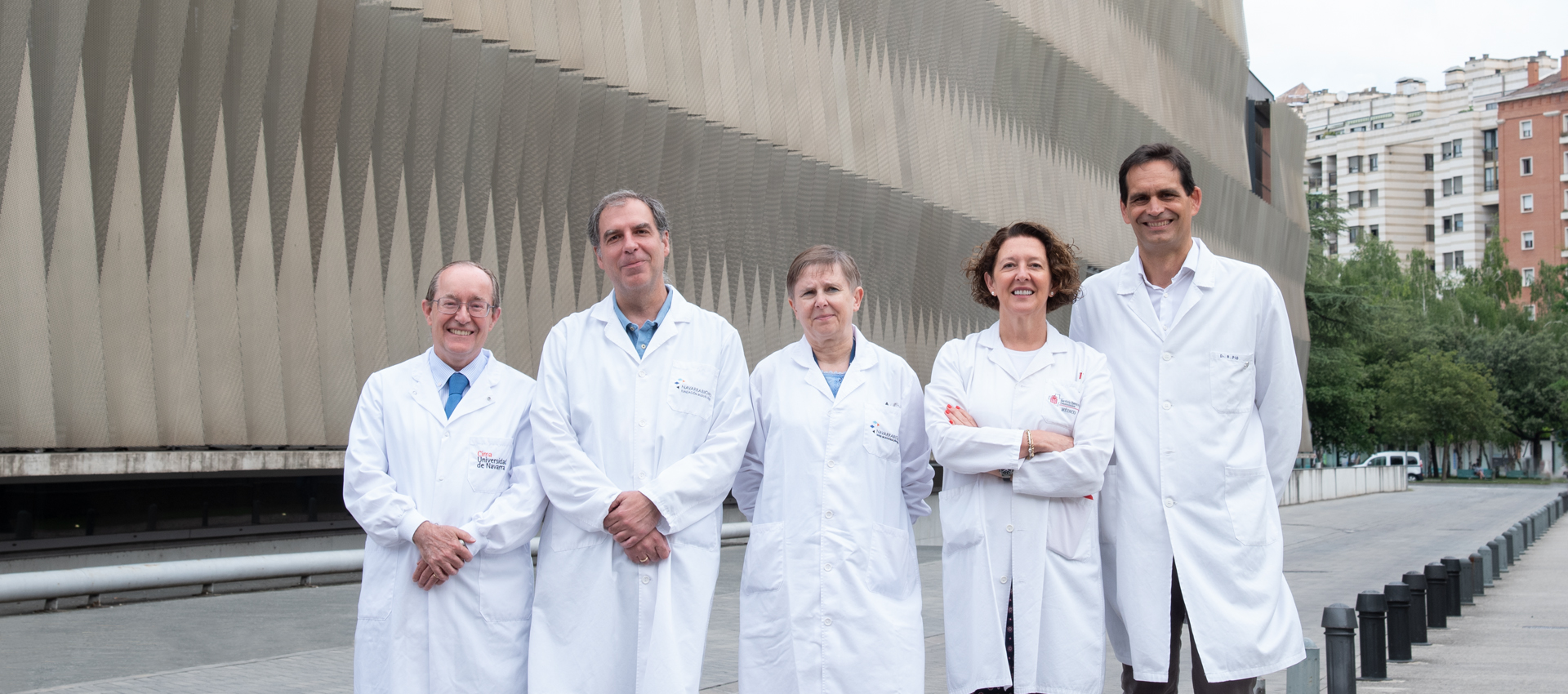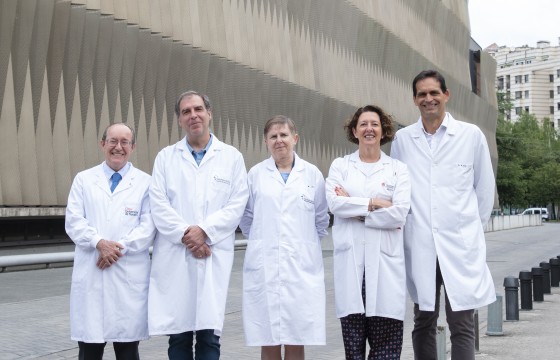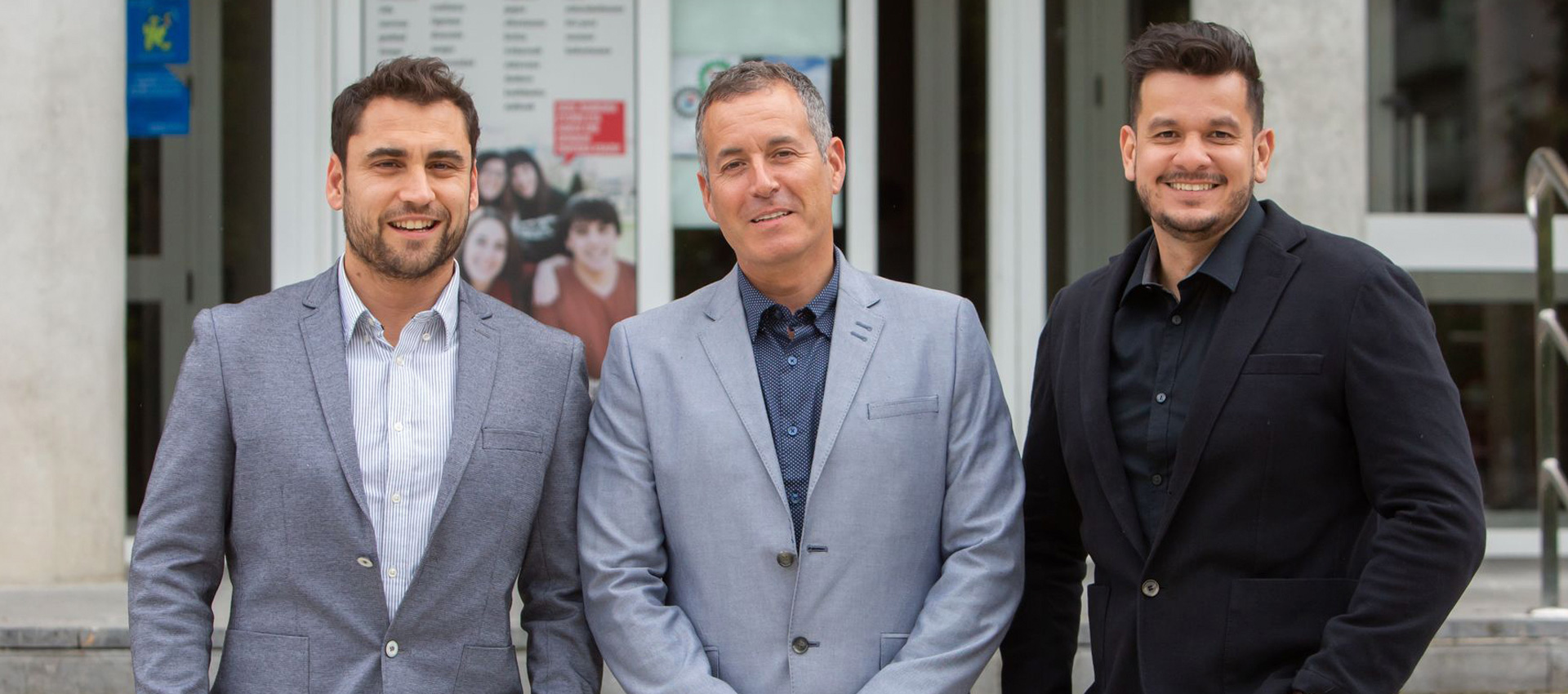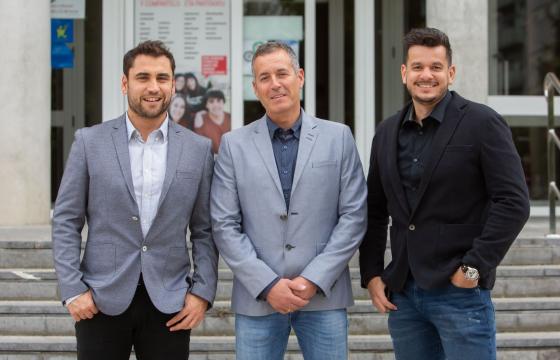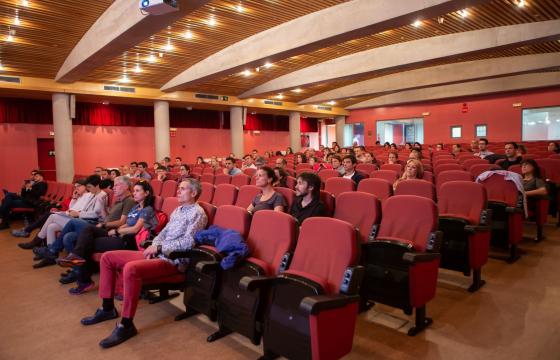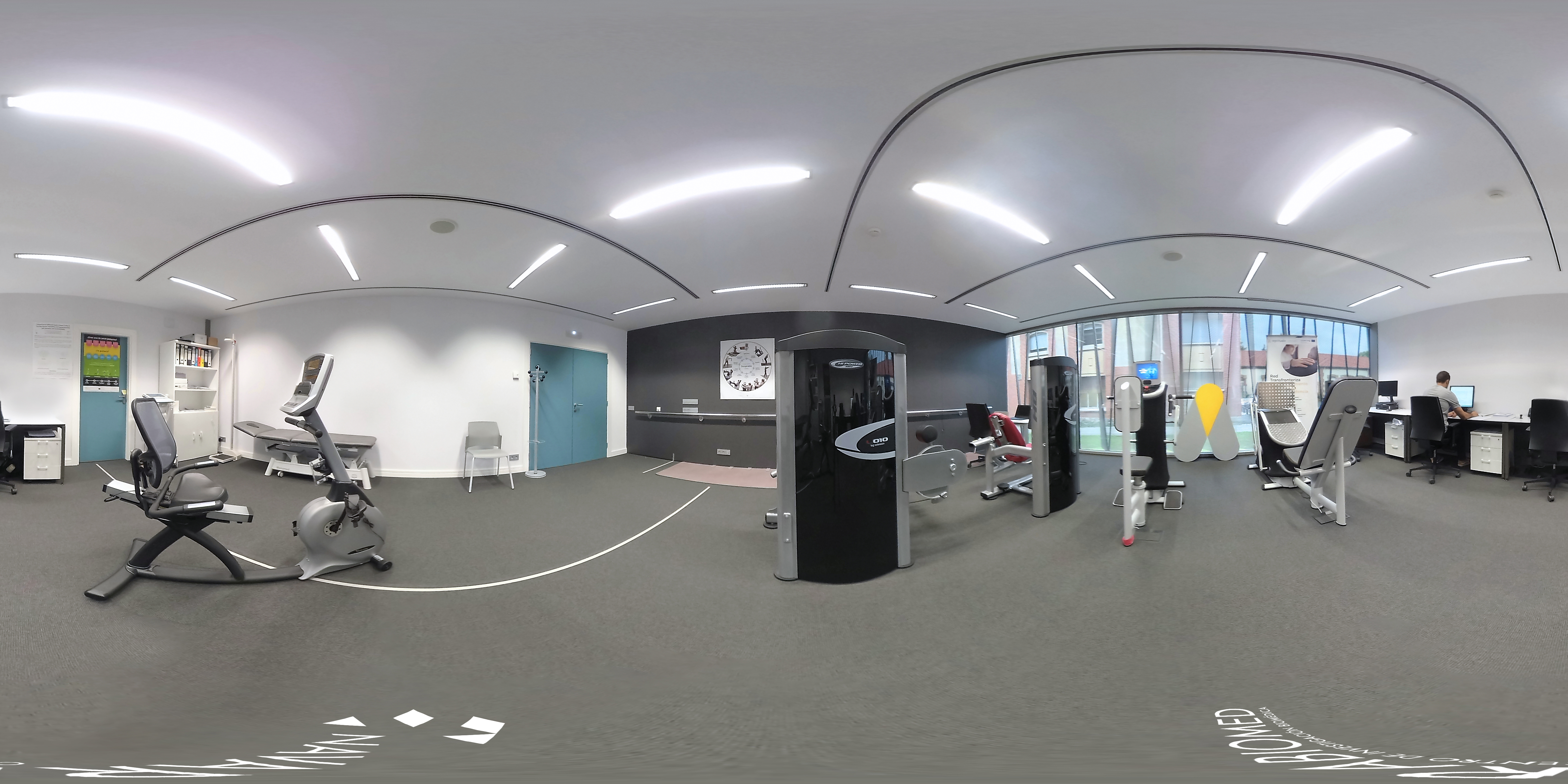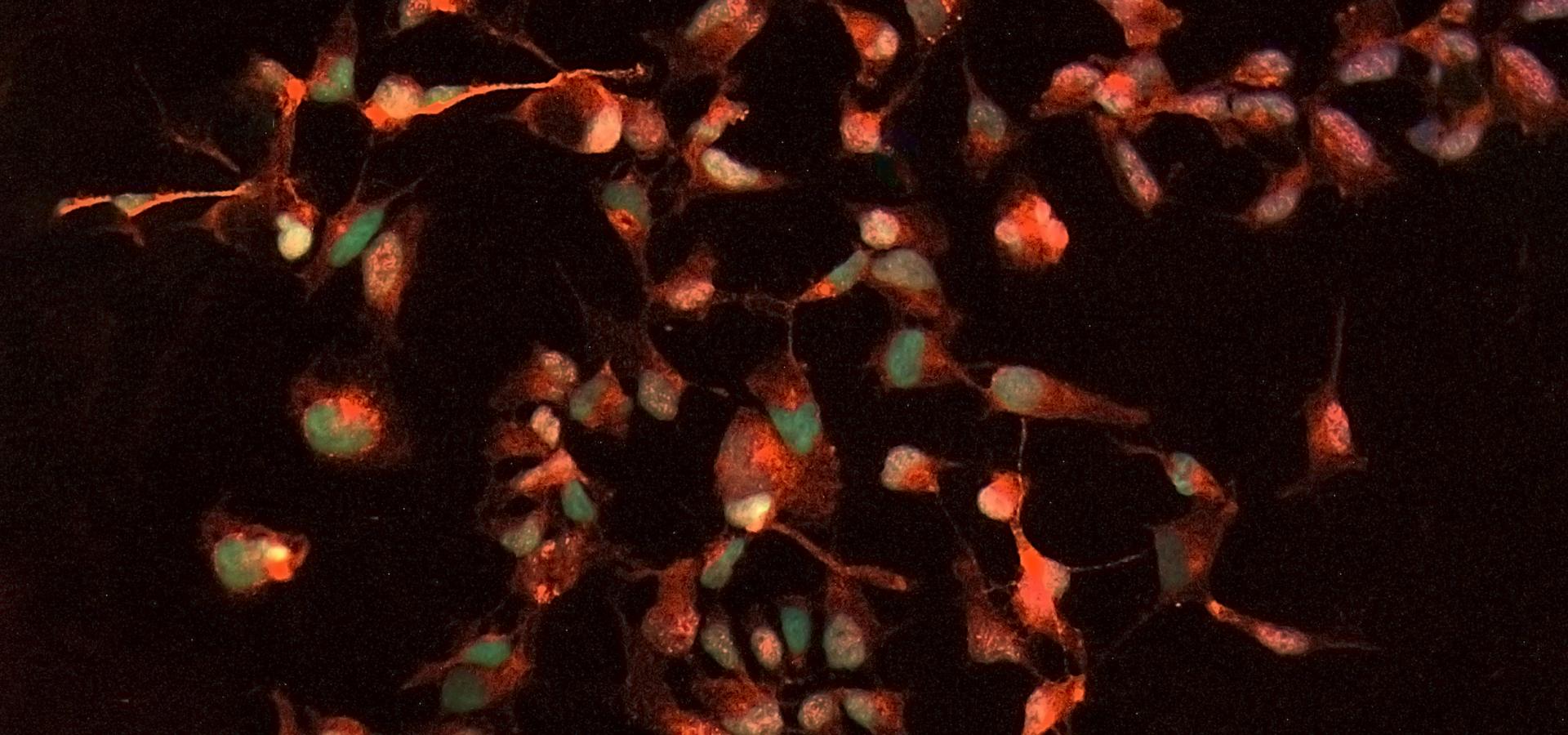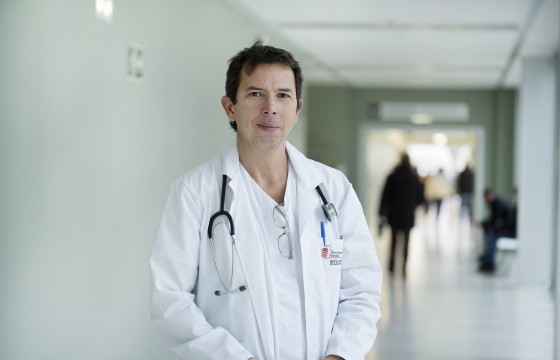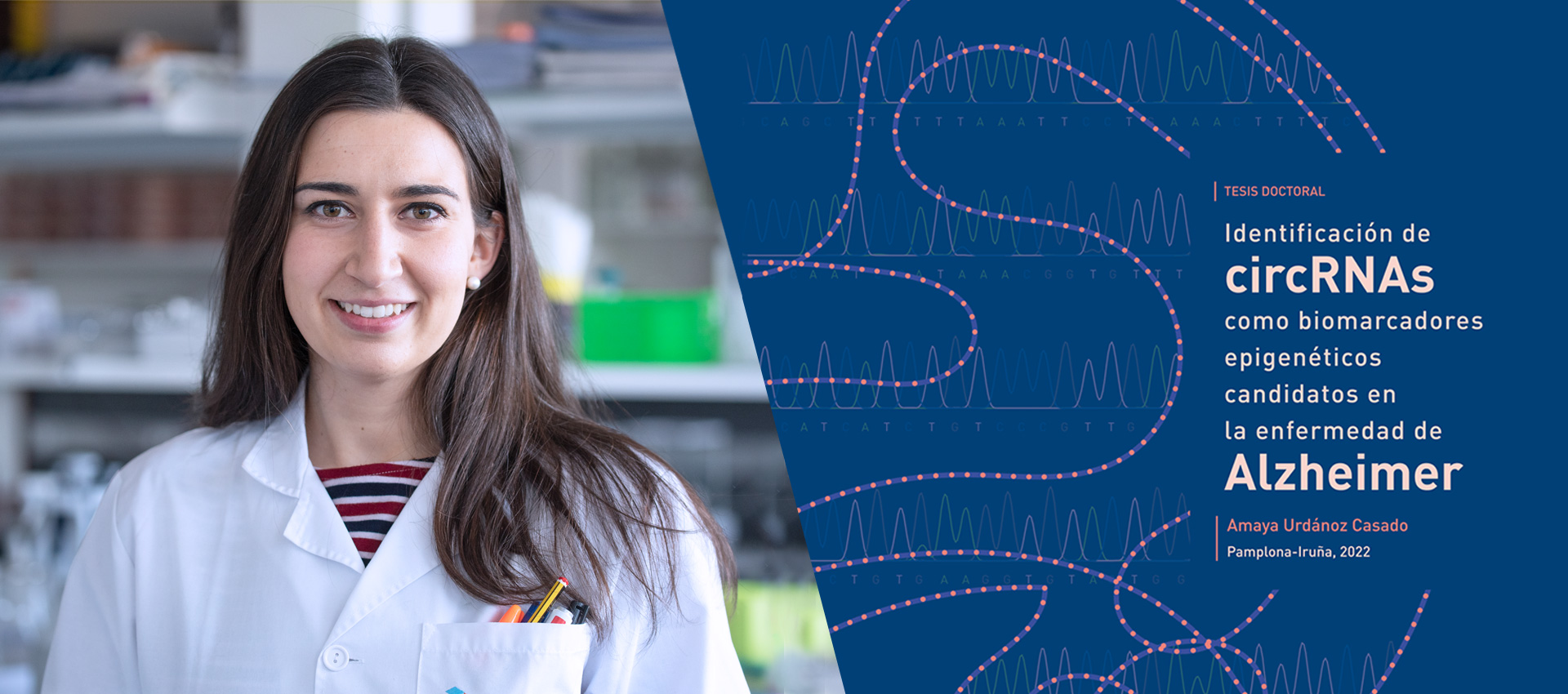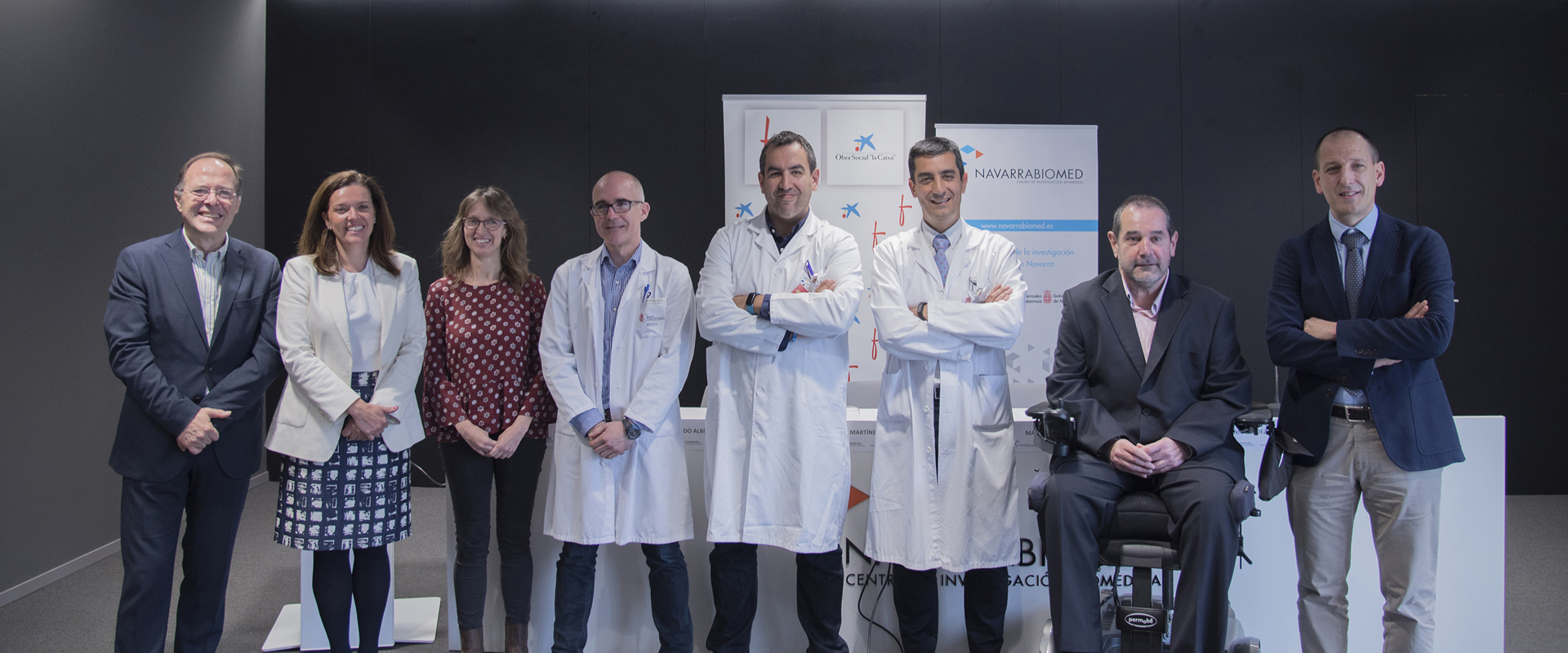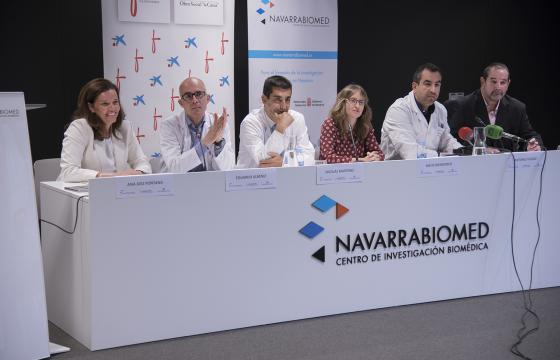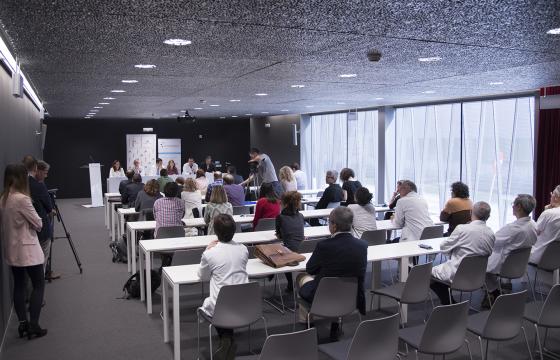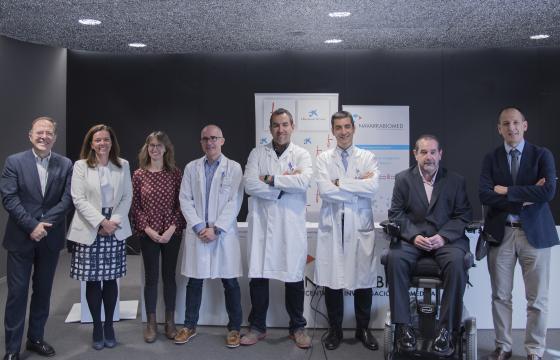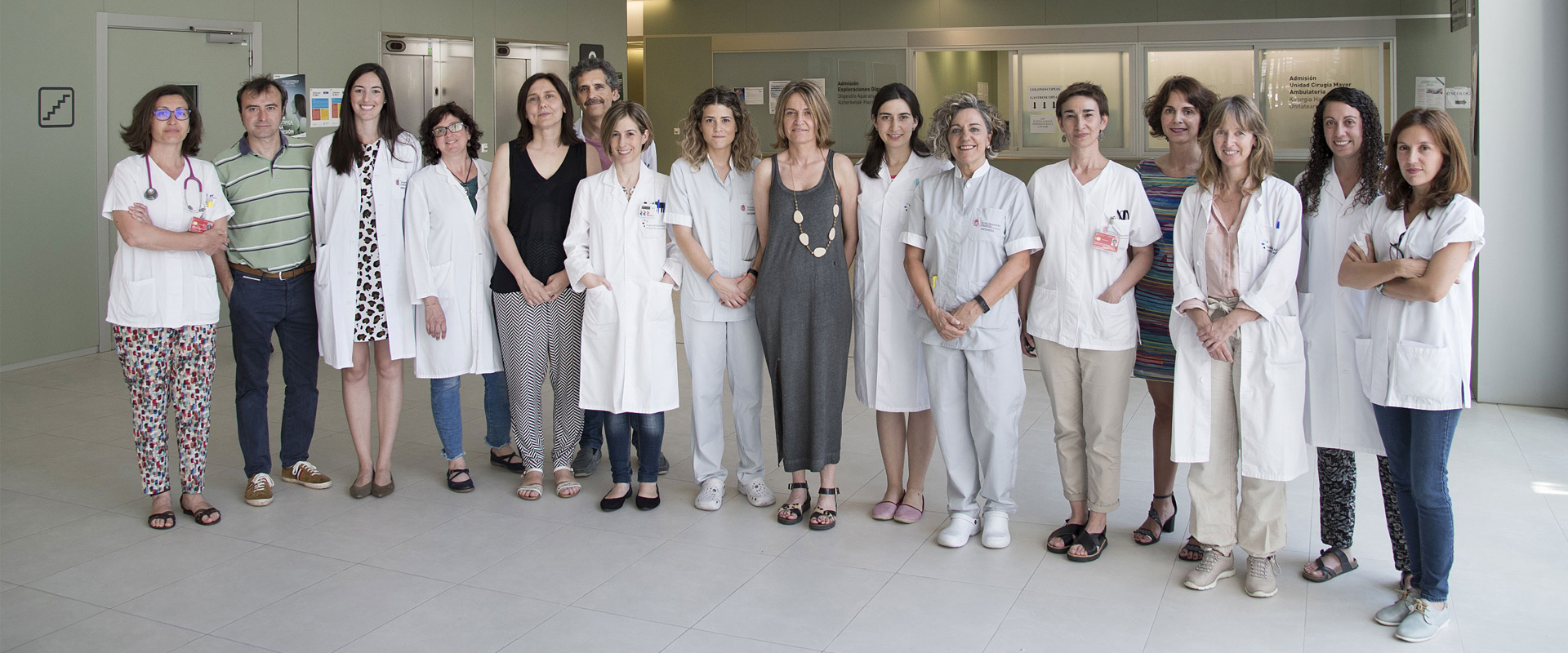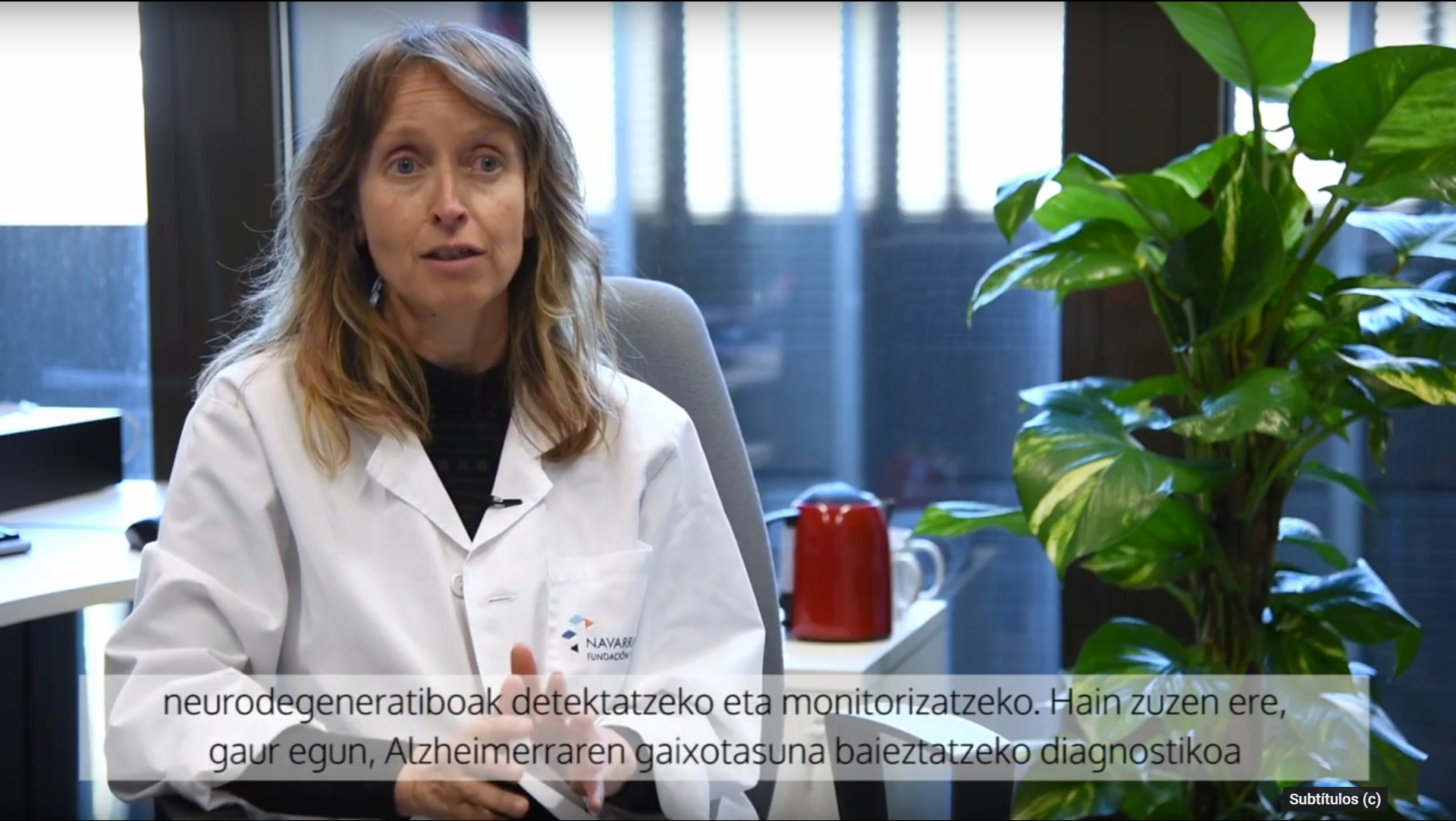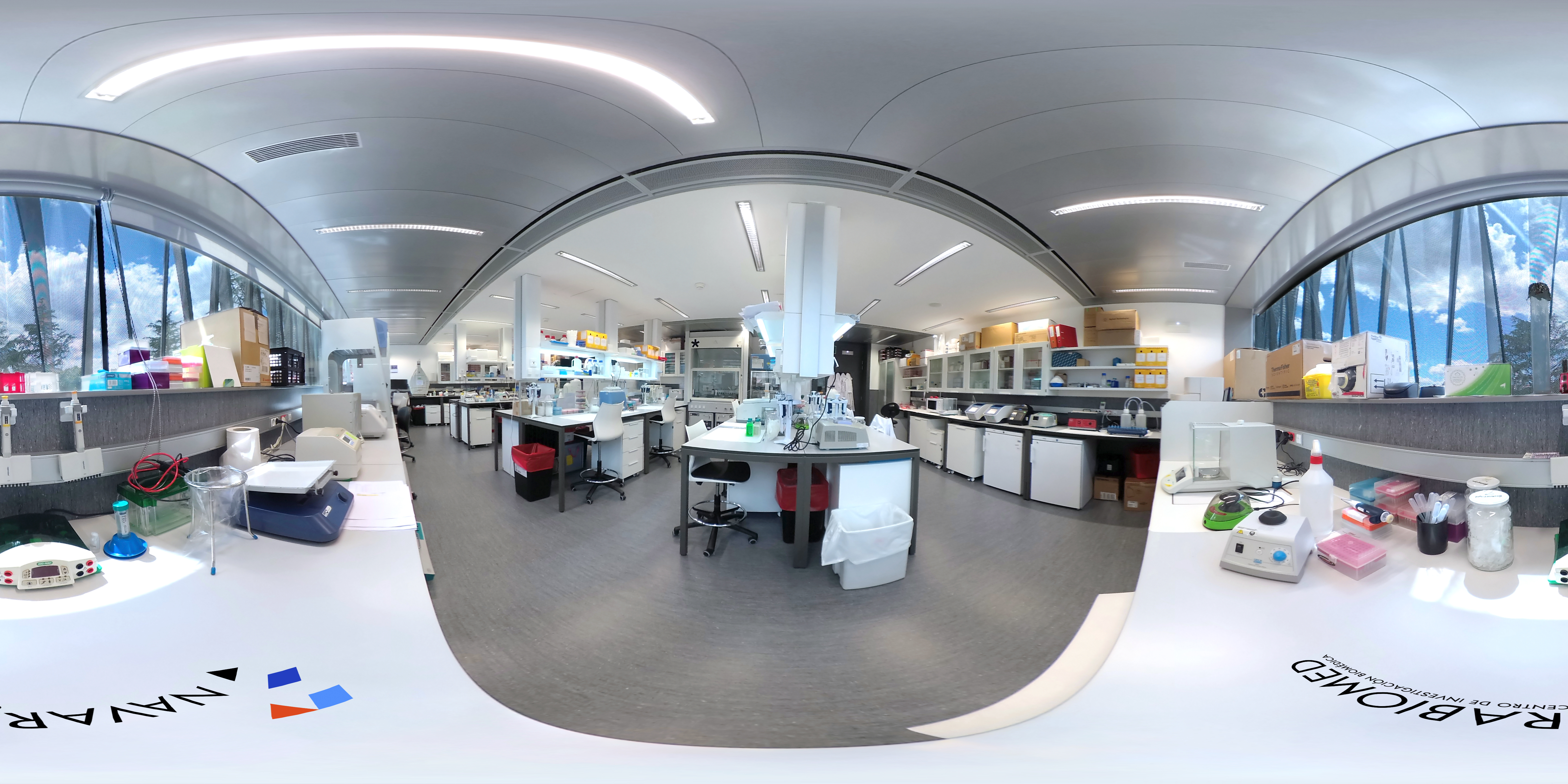The Navarra Hospital Complex (CHN) and the biomedical research centre Navarrabiomed have carried out an innovative study of the so-called ‘liquid biopsy’ in amyotrophic lateral sclerosis (ALS) diagnosis and follow-up. The results of this study were published in the international peer-reviewed journal Annals of Translational Medicine.
On the occasion of the Global ALS Awareness Day, members of the multidisciplinary team treating patients with ALS in Navarra shared the latest research and care developments in connection with this disease, including this innovative study of the use of liquid biopsy testing in ALS diagnosis and follow-up.
The leaders of the study were Maite Mendióroz and Ivonne Jericó, doctors from the CHN Neurology Department and researchers at Navarrabiomed. The project was part of the scientific activity done at the Navarra Medical Research Institute (IdiSNA), a public-private agency for the promotion of biomedical research in Navarra. The survey involved ALS patients and a control group (individuals without ALS), and professionals from the departments of Neurology and Anaesthesiology and the Nursing Team at CHN, and the Neuroepigenetics Unit at Navarrabiomed.
According to the study coordinators, one of the biggest weaknesses in research into neurodegenerative disease is the difficulty to access and study the nervous tissue of living patients. In order to address this difficulty, the study analyses the application of liquid biopsy testing, a technique recently developed in the field of cancer research, to ALS diagnosis.
Liquid biopsy is based on the fact that, when cells degenerate and die, their contents – including DNA – flow into the bloodstream. The released DNA molecules contain biochemical information about the original cells (hence the name ‘biopsy’) – in this case, diseased neurons. The original cell contents can be isolated and analysed in blood samples (hence the name ‘liquid’). The researchers have successfully used this technique with ALS patients to identify a new gene, RHBDF2, as a biomarker for ALS diagnosis in the future.
‘To the best of our knowledge, this is the first time ever liquid biopsy has been used to diagnose neurodegenerative diseases. The results have been encouraging so far. Now we are planning to extend the technique to other neurodegenerative diseases, such as Alzheimer’s disease,’ the doctors said, adding that the survey was made possible by the generous participation of patients and their families, and the volunteers in the control group.
A multidisciplinary team, 11 years and more than 200 patients
The team treating ALS patients in Navarra have striven to promote ALS research right from the start. Currently, two researchers at the Navarrabiomed Neuromuscular Disease and Motor Neuron Disease Group (headed by Dr Jericó) are working on ALS for their PhD projects, and other four projects address this neurodegenerative disease – specifically, the identification of biomarkers for diagnosis and follow-up, the role of neuroinflammation, the underlying mechanisms, the analysis of genetic factors, and the study of epidemiological aspects and disability.
The Group coordinates both research and care activities, and collaborates with the Navarrabiomed Proteomics and Biobank platforms, the Neuroepigenetics Research Unit (headed by Dr Mendióroz) and the Navarra Public and Occupational Health Service (Rare Disease Registry).
Amyotrophic lateral sclerosis is a progressive nervous system disease with a heterogeneous clinical presentation but common symptoms like muscle weakness and progressive muscular atrophy. Prognosis is variable among patients. About 5 to 10 per cent of ALS is familial, which means it arises in families in which there is a history of ALS. The other 90 to 95 per cent of ALS is sporadic, meaning it occurs without a family history, its causes still being unknown. Every year, 1 to 2 people every 100,000 are diagnosed with ALS. Despite being a rare disease, it has a deep social and family impact. Currently, there is no cure for ALS, but this does not mean there is no treatment.
ALS care involves multiple disciplines. On the occasion of the Global ALS Awareness Day the multidisciplinary team at CHN shared an informative brochure with patients and their families, highlighting the importance of coordinated social and health care through multidisciplinary units or teams. Active for 11 years now, the CHN team have treated over 200 patients to date.
Navarra has been one of the first Spanish regions to implement a multidisciplinary care model for ALS patients. Since 2007, the region has been offering comprehensive, coordinated care to them and their families, through a multi- and interdisciplinary team whose members include a neurologist, (Dr Ivonne Jericó), a nutritionist (Dr Ana Zugasti), two pulmonologists (Dr Joan Boldú and Dr Begoña Fernandez), a neurophysiologist (Dr Asun Ibiricu), an intensive care physician (Dr Juan Pedro Tirapu), a social worker (Rakel Suescun), neurology nurses, dieticians, a palliative care service and members of the Psychological and Social Support Service at San Juan de Dios Hospital (Yolanda Santesteban and Ana Baños).
From the beginning, the team set out to offer adequate, tailored, patient-centred social and health care, while promoting research as the key to finding an effective treatment for ALS.
Image: Members of the multidisciplinary team treating patients with ALS in Navarra.
